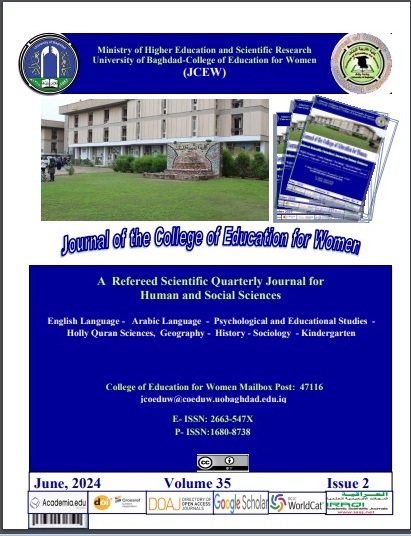Iraqi EFL University Students' Coping with Multitasking and Performance in Productive Skills: A Correlational Study
DOI:
https://doi.org/10.36231/coedw.v35i2.1740Keywords:
Coping with Multitasking, EFL, Speaking Performance, Writing PerformanceAbstract
Language is critical for the development of human society. It is an essential mode of communication among individuals, groups, and nations. Nowadays, an increasing number of people are learning English as a foreign or second language, with the main objective of achieving English proficiency and to communicate with others. Productive skills allow learners to express their thoughts, ideas, and opinions in English. They enable learners to participate in conversations, engage in discussions, and convey their messages effectively. Multitasking refers to the ability to handle and manage multiple tasks simultaneously. Therefore, the current study investigates the relationship between coping with multitasking and performance in productive skills among Iraqi EFL University students. To this purpose, a sample of 360 students from different Iraqi universities (including Baghdad, Basra, and Mosul), colleges of education-English departments were selected randomly during the academic year (2022-2023) as a sample for this study. Two instruments are used to collect data: a questionnaire to measure coping with multitasking, and productive test to assess students' speaking and writing performance. A correlational analysis is conducted to examine the relationship between coping with multitasking and performance in productive skills. The findings indicate that Iraqi EFL university students possess a good level of coping with multitasking. Furthermore, the study reveals a positive correlation between coping with multitasking, and productive skills which is suggesting that students who employ these multitasking perform better in speaking and writing. The results also demonstrate that coping with multitasking significantly contribute to explaining the variation in productive skills.
Downloads
Published
Issue
Section
License
![]()
All articles published in Journal of College of Education for Women are licensed under a Creative Commons Attribution 4.0 International License.











